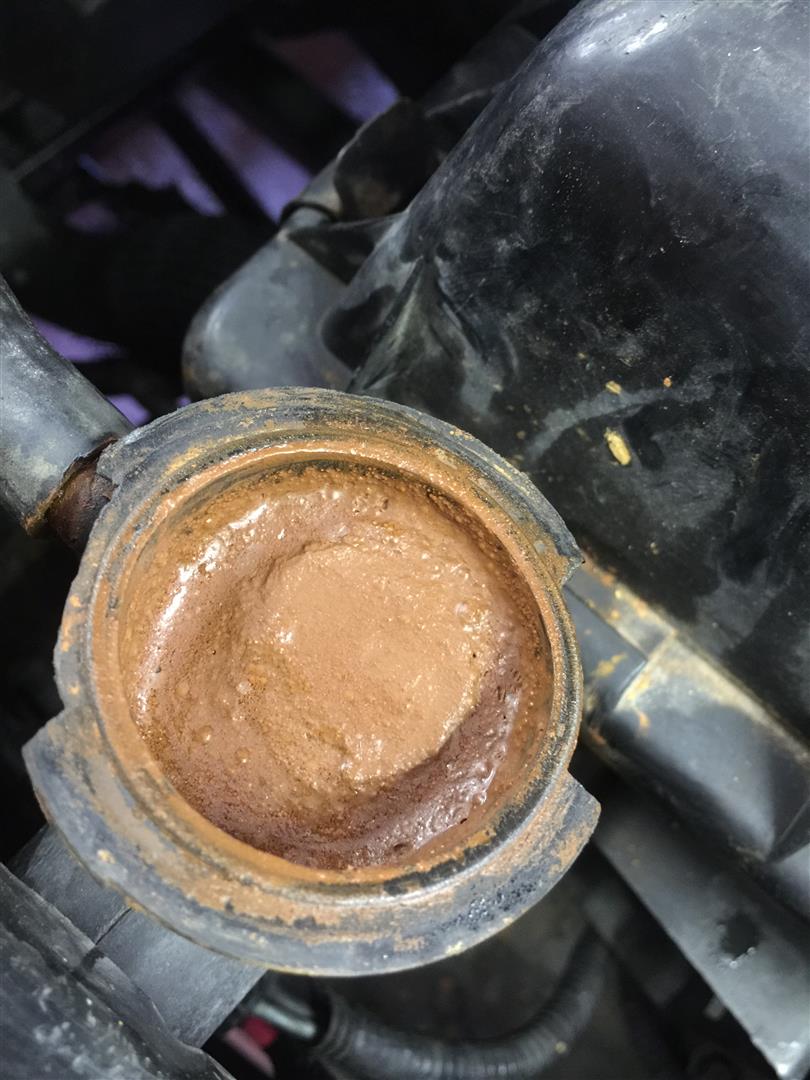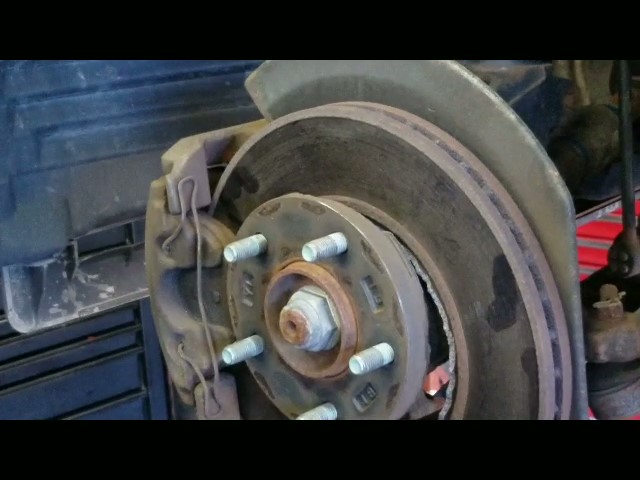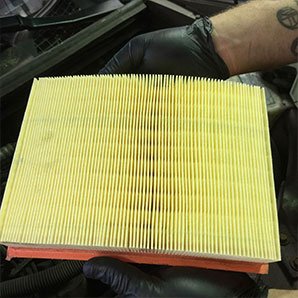Posted on 3/5/2025
What is a Transmission service? A transmission service for your vehicle involves maintaining and cleaning the transmission system to ensure it functions properly. The transmission is responsible for transferring power from the engine to the wheels, allowing the vehicle to change speeds. Regular maintenance of the transmission helps prevent problems that could lead to costly repairs down the road. Why You Need a Transmission Service:Prevent Wear and Tear: Over time, the transmission fluid can break down and become dirty, which can cause the transmission to overheat and wear out. A transmission service typically includes draining the old fluid, replacing the filter, and refilling with new fluid to keep it running smoothly. Improved Performance: Regular transmission service helps the vehicle shift smoothly and maintain power, making driving more efficient. It can prevent jerking, slipping, or difficu ... read more
Posted on 10/15/2024
Is your car not running like usual? Is it stalling or surging? Rocking or shaking? Getting issues such as these checked out as soon as possible is ideal as it could grow into a bigger issue if you let it go. There could be several reasons why your car is running rough. Here are some common issues to consider: 1. Fuel Issues: Dirty fuel injectors or a clogged fuel filter can affect the flow of fuel to the engine. Also, a weak (aged), a bad fuel pump, and fuel leaks. 2. Ignition Problems: Worn spark plugs, ignition coils, or issues with the ignition system can cause misfires, leading to rough running. 3. Air Intake Issues: A dirty or faulty mass airflow sensor, air filter, or intake manifold can disrupt the air-fuel mixture. 4. Vacuum Leaks: Leaks in the vacuum system can create an imbalance in the air-fuel mixture, leading to performance issues. 5. Engine Timing: Problems with engine timing, such as a worn timing belt or chain, can cause rough running. Cam shaf ... read more
Posted on 1/10/2023

A brief introduction to Car Coolant: This picture shows the worse consistency your coolant can have. Coolant fluid should flow like water. Coolant keeps your car operating at the temperature it needs to be at. Under the hood, it keeps your car from overheating and causing serious damage, like destroying the engine or causing leaks that can damage other systems. In the cabin where you spend most of the time, it affects your air conditioning and heating system. What and Where is the coolant system? The coolant system works to keep your engine from overheating. It absorbs the heat and pushes the now-hot coolant toward the radiator where it is cooled. Major parts of the coolant system include the coolant reservoir, water pump, radiator, thermostat, hoses, and cylinder head in the engine. The Coolant system is in the front end of your car and around your engine block. What can go wrong if you do not change your coolant or if the ... read more
Posted on 12/23/2022
Kinds of key fobs There are quite a few types of key fobs in the market today. The most common today is the switchblade or flip-style key fob, this one gives you the ability to hide the key when it is not in use. Key fobs range from aftermarket fobs to key fobs to ones that link directly to the Vin of your car, to the keyless fob. Key Fobs are getting more technologically advanced as time goes on. Some have remote start; some can summon your car and even park it! How often do the batteries need to be changed? For most key fobs the batteries last 3-4 years. Sometimes key fobs die without warning but usually, they start with not locking or unlocking the car with a single push of the button and build to it taking multiple tries to open or lock your car. Depending on the type of key fob you have you may be able to change the battery on your own with the battery size for your fob and a small screwdriver and the help of YouTube. If that sounds tedious t ... read more
Posted on 10/27/2022
It is important to check the fluids under your hood regularly. Sometimes it can be confusing under there and it is important to get the fluids into the right place. Colin and Pooh Bear walk you through what to look for in this video to take all the guesswork out of figuring out what fluid goes where. https://youtu.be/S_towp5Q0WM The fluids you should be checking at least once a month are: Oil Windshield wiper fluid Power steering fluid Brake Fluid Coolant Transmission Fluid- This may or may not be in your car. Some cars have an electric transmission, which does not need fluid. The reason for the monthly check is to catch a leak and to check the color and quality of the fluids. For warned is forearmed and catching things early can not only help your car but your wallet as well.
Posted on 4/25/2019
The Season of Pot holes is upon us! Winter is hard on everyone and everything, yes that means on your roads and cars as well. That is why April is Car care Aware month. Its time to freshen up for the Spring. The biggest threat to your car right now is pot holes and neglect of maintenance. Pot holes meh, am I right? They come back every spring like flowers. They are caused by water seeping into the cracks of the pavement, then freezing and thawing, and then being driven on causes the pavement to weaken and eventually give. If you lucky your city is on them like white on rice. Either way they are a danger to your car. Alignments, Tires, Hubs, your exhaust, your under carriage and depending on how deep it is anything within its evil grasp. It can cause leaks, dents and compromise the integrity of parts and sometimes clips can come off and parts can start to drag. Is there any way to avoid them? Unfortunately, there’s no guarantee, that’s because your car can ... read more
Posted on 10/26/2018

Rotors What are they? Rotors, with assistance from the brake pads and calipers, cause your car to slow down and/or stop. They are the circular metal part that the brake pads rub against to cause the wheels to stop spinning. They are as important as brake pads for stopping. Why do they go bad? Heat isn’t a friend of metal parts. Heat from friction can cause warping and wear. For those of you that remember LP records, think of records that were left in the sun. Signs you need new rotors. Squeaking, rough stopping, vibrating when slowing, When your rotors go bad you will hear it and feel it. Make it over to your mechanic as soon as possible. Helpful Info Rotors should be replaced every 30-70 thousand miles. And when you change the rotors you should change your brake pads too. Since the rotors and brake pads rub together the brake pads are ‘mated&rsquo ... read more
Posted on 8/15/2018

Overheating What does it mean when your car is overheating? Ruh roh, your gauge is climbing to the dreaded red H. What is causing it and what can you do to fix it before it destroys your engine or causes some very expensive bill? Cars start to over heat as they reach 250 degrees. (Cars usually run at 195-220 degrees. Just to give you an idea.) Now keep in mind that the boiling point for your coolant is 250–260 degrees. Not much wiggle room, is there? Why is it important? Cooling your engine is very important. As it is with most machines, like your computer, keeping things cool as they do their job keeps every thing from breaking down due to heat and friction. Here are some things that happen to your car as the temperature climbs. Lowers your fuel combustion efficiency Causes corrosion Starts to heat and warp the metal in and around your engine. Causes the viscosity of the liquid in your engine to change to gunk (oil, Co ... read more
Posted on 8/3/2018

So, your precious babyies are off to college! You want to make sure they’re prepared and safe. You have their dorm room supplies, class schedules, and you have all the emergency numbers tattooed to their arm. (ok, so maybe not tattooed). Have you checked on their car? Teenagers are notorious for letting car problems slide until the last minute. So, is their car up to scratch? Let’s see. ENGINE- Does the car have any check engine lights on? FUNCTION-Does everything work properly? (AC, Radio, Seat belts, turn signals?) WIPER BLADES-Do the wiper blades wipe away the rain? LIGHTS-Headlights, Brake lights, cabin lights, running lights? All glowing brightly? EMERGENCY CAR KIT-Do they have jumper cables and an emergency kit? BASIC CAR CARE-Do they have the know how to change a car tire? Can they read tire pressure? Can they execute basic car care? FLUIDS ... read more
Posted on 7/20/2018

Air Filters Cars can have one or two air filters. One is for your engine and new models have one for your breathing air. Your cabin air filter is located usually behind your dash on the passenger side of the car. Your air filter for your engine is located at the top of your engine in its own housing. Why do air filters matter to you? Air filters prevent debris from getting into your engine and damaging it. It also helps your car to run. Cars work on a combustion system. You need a spark and you need oxygen. Having clean filters also increases fuel economy. Cabin air filters protect the breathing air from pollen and dirt. Signs something is wrong: You’ve notice a drop-in fuel efficacy Your car sounds funny Your car has a check engine light Reduction of horsepower Your car is misfiring Smell of gasoline Black smoke and/or flames coming out of the exhaust Below are examples of clean and dirty engine air filters